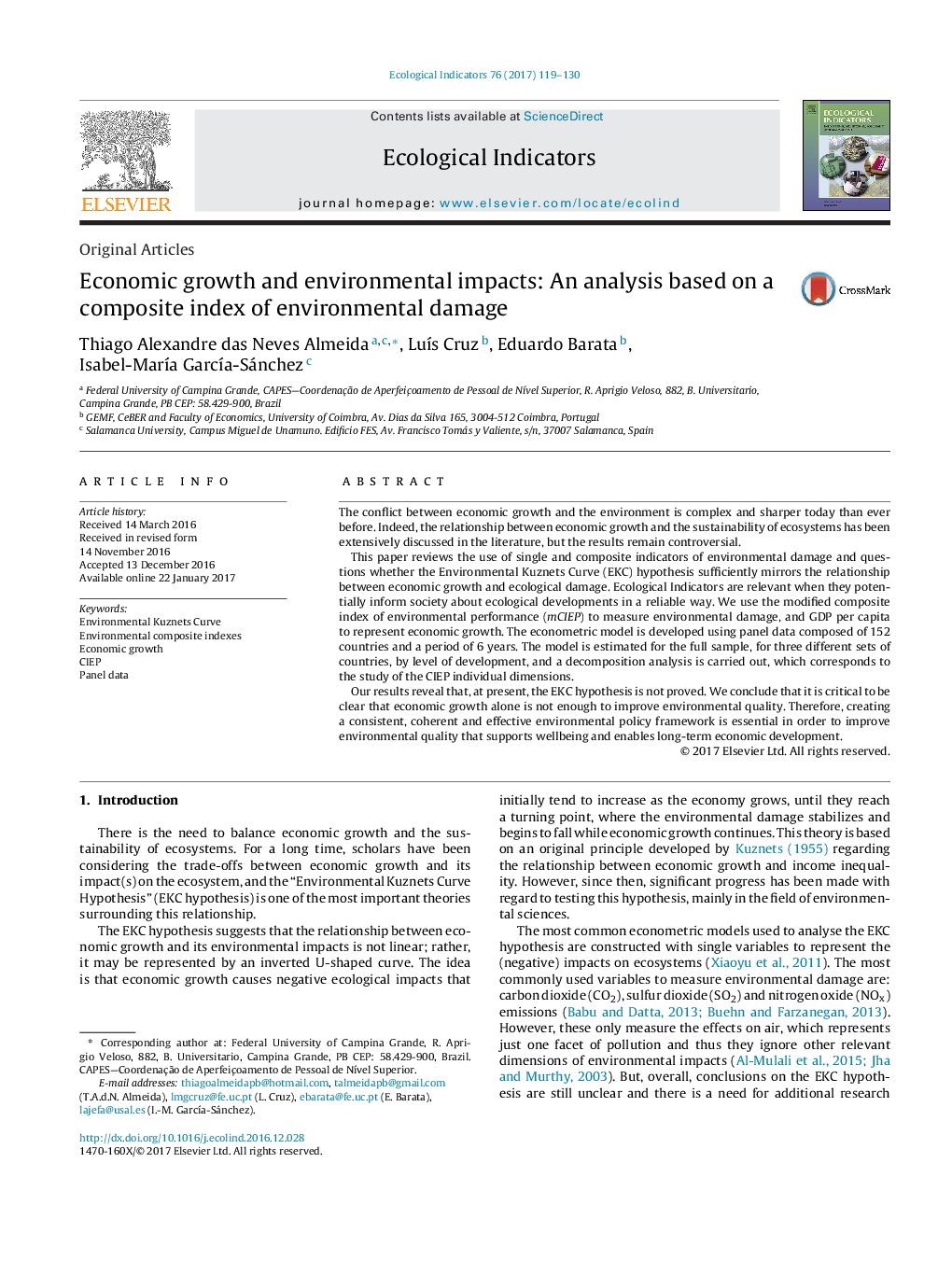| Article ID | Journal | Published Year | Pages | File Type |
|---|---|---|---|---|
| 5741677 | Ecological Indicators | 2017 | 12 Pages |
â¢There is the need to balance economic growth and the sustainability of ecosystems.â¢The literature results on the EKC hypothesis using single variables are still unclear.â¢Research on the EKC hypothesis using composite indexes is still scarce.â¢Our results show that the mCIEP and its dimensions do not support the EKC hypothesis.â¢Economic growth alone is not enough to improve environmental quality.
The conflict between economic growth and the environment is complex and sharper today than ever before. Indeed, the relationship between economic growth and the sustainability of ecosystems has been extensively discussed in the literature, but the results remain controversial.This paper reviews the use of single and composite indicators of environmental damage and questions whether the Environmental Kuznets Curve (EKC) hypothesis sufficiently mirrors the relationship between economic growth and ecological damage. Ecological Indicators are relevant when they potentially inform society about ecological developments in a reliable way. We use the modified composite index of environmental performance (mCIEP) to measure environmental damage, and GDP per capita to represent economic growth. The econometric model is developed using panel data composed of 152 countries and a period of 6 years. The model is estimated for the full sample, for three different sets of countries, by level of development, and a decomposition analysis is carried out, which corresponds to the study of the CIEP individual dimensions.Our results reveal that, at present, the EKC hypothesis is not proved. We conclude that it is critical to be clear that economic growth alone is not enough to improve environmental quality. Therefore, creating a consistent, coherent and effective environmental policy framework is essential in order to improve environmental quality that supports wellbeing and enables long-term economic development.
